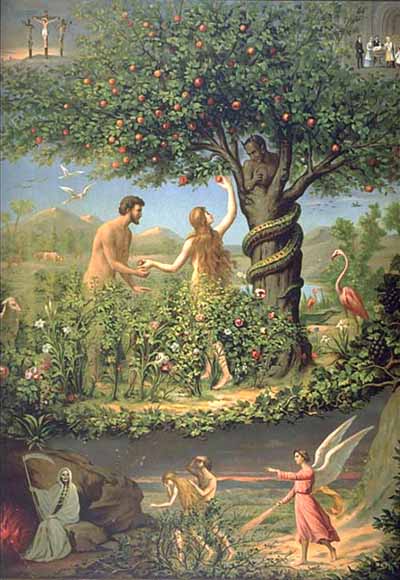Some doctrines we take so for granted that it is a grace to see them fresh – in all their radical character.
While we have yet a few days of Christmas season, I thought I’d share what I learned from a classroom of Jewish students about Christmas this year.
For a few years running, a local temple has brought one of its religious education classes to the retreat center where I work to tour the chapel and learn about Catholic worship.
I usually make a few remarks on the basics of Christian belief, give the tour, and then take questions – which can be all over the map, and tend to correspond to Catholicism in the movies that year.
One year almost all questions pertained to sexual morality; another year devils and exorcisms were on their minds.
This year for the first time, one of the kids asked, “What do you think about us?” meaning the Jews. This led to a discussion of sin and grace, and particularly of Baptism and our doctrine of Original Sin.
The rabbi who accompanied the class had been silent all evening. When I explained Original Sin, however, he intervened (very respectfully) to point out to his charges that Original Sin had “no corresponding concept” in Judaism, and this was one of the most important differences between Judaism and Christianity.
“You don’t come into this world carrying someone else’s burden,” he said.
He did not elaborate, but in a flash of intuition it struck me that perhaps the reason he found this doctrine – of all the Christian truths I’d presented—most dangerous was that he did not want these precious young souls being told there was something wrong with them. They were not damaged goods!
Looking into those beautiful faces, I didn’t want to tell them that, either, and all at once it struck me how radical it is to assert that we’re born into this life in need of a Savior.
Of course, the doctrine of Original Sin is a bit more subtle than that. We don’t believe that we bear the personal guilt of Adam & Eve; we believe that by sinning, our first parents cut themselves off from the life of God in them, and were no longer able to pass it on to succeeding generations. Baptism restores the soul to the state of grace it ought to have, but doesn’t, at birth.
“You’re born,” I told the kids, “exactly the way every Christian child is born.” It’s not a doctrine of Christian superiority or merit. It’s about a need for salvation we can’t obtain for ourselves. We all experience sin and the attraction to it. We need grace, which we receive initially at Baptism.
Pondering the adequacy of my answers following this discussion, the next few days became a period of meditation on the human condition with and without original sin.
It would be nice to have no primordial wound – but how would it be if I’d never been told of this primordial wound, but had it nonetheless?
What if I had to carry the full guilt of all my sins myself? If I thought my moral failures sprang directly from my innermost being –from me alone!—rather than being in part due to the taint of concupiscence? What impact would that have on my self-image, my self-worth, my hopefulness?
In light of those questions, the doctrine of Original Sin seems oddly positive and acutely merciful. Its message is not that you and I are damaged goods, but that the attraction we often feel to wrong behavior is not innate, it’s not “who we are.” And it admits of wonderful remedy!
I think I never celebrated such a happy feast of the Immaculate Conception as this past Advent, when, by light of these reflections, I had a richer understanding of what hope that feast signifies for all of us.
Our Lady was “redeemed in a more exalted fashion” as the Catechism says, but with the same redemption available for us all – the one offered by the baby in the crib whose birth we are still celebrating.

No comments:
Post a Comment